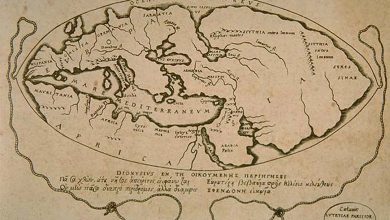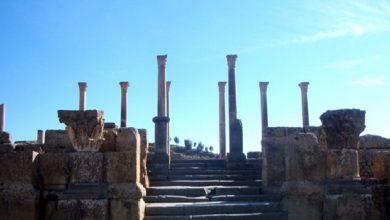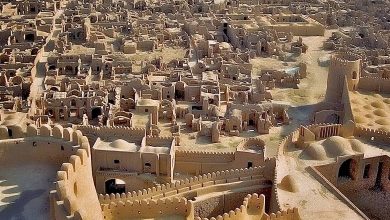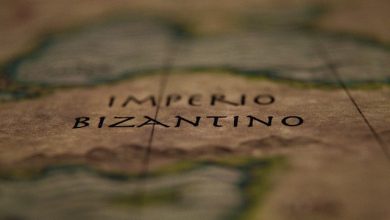What is the difference between the gods of Ancient Rome and Ancient Greek?

Many of us are familiar with the names of gods who lived in ancient times. You may have learned about them by watching movies, reading novels, or studying textbooks. But is there a connection between the gods of ancient Rome and those of greek? How well-versed are you on the pantheons of both the Greeks and the Romans? The gods of ancient Rome and ancient Greece were somewhat different, and we are going to compare and contrast them in this article.
People in ancient Greece had the belief that gods existed. Homer, the ancient Greek philosopher and poet, references this in his epic poem “The Iliad.” He states in his writing that the gods have flawless physical forms. They had a particular connection to the people of this world. Every one of the gods served a certain purpose. Some were in charge of the kingdom, such as the underworld, the sky, and the sea element. Others were responsible for regulating things that have a significant place in people’s lives, such as music, war, love, youth, and entertainment. There were 12 major gods in Greek mythology. They lived on Mount Olympus and enjoyed extraordinary power.
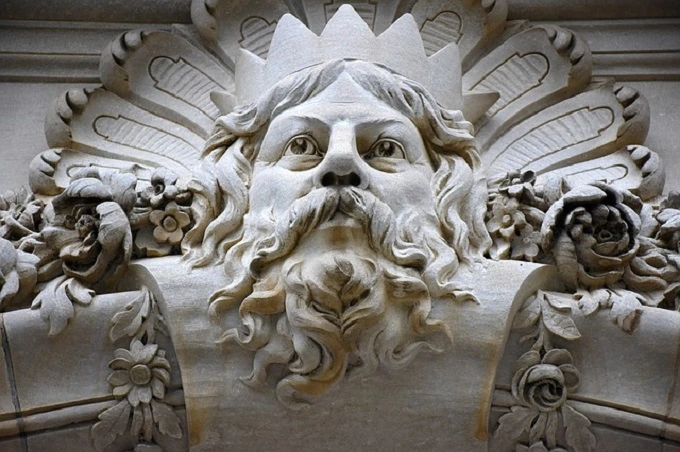
15 minor gods followed them. Additionally, there were the titanic creatures. They had superiority over mere mortals. They dominated the cosmos with gods that were the elements themselves, such as Gaia being the body of the Earth and Chronos representing time. Before the gods, they were the ones who ruled the universe. They came into existence at the same time as the world did.
Aphrodite, the Greek goddess of love, beauty, and childbirth, was considered one of the most important deities. Apollo, the god of prophecy, was also a member of the pantheon of Olympic gods and was responsible for healing, plague, music, poetry, and shooting. In addition, he guarded young men until they reached adulthood. Ares was not only the god of battle but also the god of law and order in society. Artemis was the Greek goddess associated with the outdoors and hunting. Like Apollo, she was the guardian of females until they reached adulthood. Athena was the second most important deity in ancient Greek religion. She was in charge of knowledge, sound guidance, battle strategy, and craft.
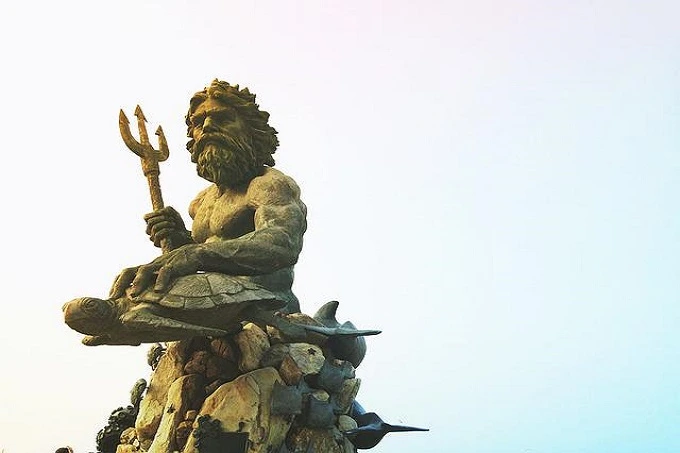
Both Demeter, the goddess of agriculture, and Dionysus, the god of wine, laughter, insanity, and greenery, were associated with the harvest. Hephaestus was worshipped as the god of fire and constructions made of metal, sculptures, and architecture by the ancient Greeks. Hera reigned as the supreme monarch among the gods. She cherished marriage, the female gender, and the skies. Hermes was the god of commerce, animal husbandry, highways, thievery, hospitality, and diplomacy. He was also associated with roads.
He volunteered his assistance in athletic tournaments and was in charge of astronomy and astrology. Poseidon was the god who ruled over the oceans and rivers. He had the power to command floods, storms, earthquakes, and even horses. Zeus was considered to be the monarch of all the gods. He was master over the heavens, the climate, the elements, and the fates of everyone.
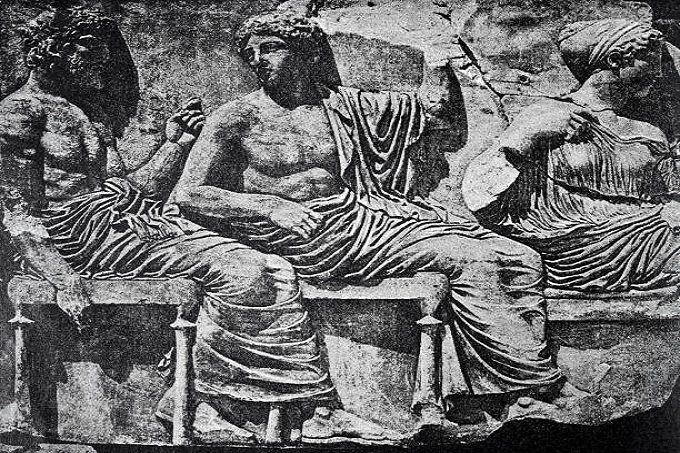
The gods who lived on Olympus had relationships with one another. They behaved like ordinary mortals by having relationships, arguing with one other, and putting up. They are related to each other as brothers and sisters since they are derived from the Titans. Even the lesser gods had their unique family tree. They were childlike and fanciful in nature. In imitation of them, the ancient Greeks took pleasure in the body-centered aspects of life on earth. They didn’t give any consideration to what happens beyond death.
The ancient Romans had their own pantheon of gods that they believed in. The poem “Aeneid,” written by Virgil, has references to them. There were gods in ancient Rome that watched over and guarded every action humans took. For instance, soldiers would pray to the god of battle, married ladies would consult the goddess of the home, and sailors would seek guidance from the gods of the sea. These gods had great power and a great deal of wisdom. Similar to the ancient Greeks, the ancient Romans believed in a pantheon of twelve gods. Venus, the Roman goddess of love, is one of these deities. Apollo was a Greek deity who was associated with healing and music.
Mars was the god of battle, while Diana was the huntress and protector of animals. The ancient Romans worshipped Minerva as both a goddess of knowledge and of earthquakes. Minerva was also known as the protector of Rome. Bacchus was considered the god of wine, whereas Vulcan was considered the god of fire, metal, and architecture. Juno reigned as the supreme monarch among the gods. Mercury was the one who built the roads and oversaw the trade. The god of the ocean was known as Neptune. Jupiter reigned supreme over the other gods. The Romans looked to the gods as models for how they should conduct themselves.
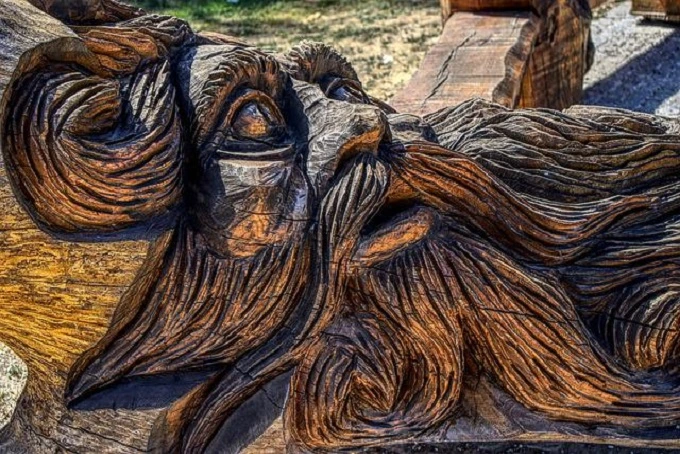
Every one of them had a wealth of experience in the domain that was their job. Diana was an exceptional hunter, while Mars was an unmatched fighter. Vulkan was an excellent craftsman in the field of blacksmithing. People cried out to their gods for help. They received remuneration for all of their hard work and dedication in the next life.
But which of their gods first arose in ancient Greece or ancient Rome, and what are the key differences between the two groups of gods? The dawn of civilization in ancient Greece occurred a thousand years before it did in ancient Rome; hence, the ancient gods of ancient Greece came first. The ancient Greeks had the belief that when the world was first formed, all of its constituent parts, such as time, earth, and sea, were its initial gods. These ancient gods were the ones who gave birth to the Titans, and they are also the ones who are now considered to be the founders of the Olympian gods. The Roman society expanded, and the more it did so, the more it interacted with Greek culture.
The Romans already had their pantheon of gods, but they found that the more complicated pantheon of the Greeks suited them, and so they adopted it. They assigned their names to the recognized gods, and the Romans interpreted them to be the same gods that the ancient Greeks worshiped but with more “exemplary” conduct. They watch out for others and serve as examples to follow. Both sets of people believed in a total of 12 supreme gods in their respective cultures.

On the other hand, there is a significant difference between the two. The ancient Greek gods behaved in line with the inheritances conferred upon them. They demonstrate their dominance over the world inhabited by mortals. Fear was a permanent part of life for the ancient Greeks. They were terrified that the gods, who had been fighting among themselves, would take their anger out on them instead of each other and that they would be punished. And the “new” gods of the Romans served both as models and guardians in their society. Their mannerisms were supposed to be copied. Those individuals who maintained this pattern of conduct did not have any concerns over the quality of their experience in the hereafter. These people have shown themselves deserving of a place among the gods.
However, it is interesting to note that the ancient Greeks gave the gods the image of humans, even though the gods were unreachable to ordinary people. The ancient Romans believed in several gods who ruled over various aspects of life. People’s goals centred on becoming just like them. The gods worshipped in ancient Greece and Rome are shown in many works of art from those civilizations. The difference between inspiration and ambition sets the gods of these two civilizations apart from one another. The Roman gods are what man aspires to be like, while the Greek gods take their inspiration from man.

